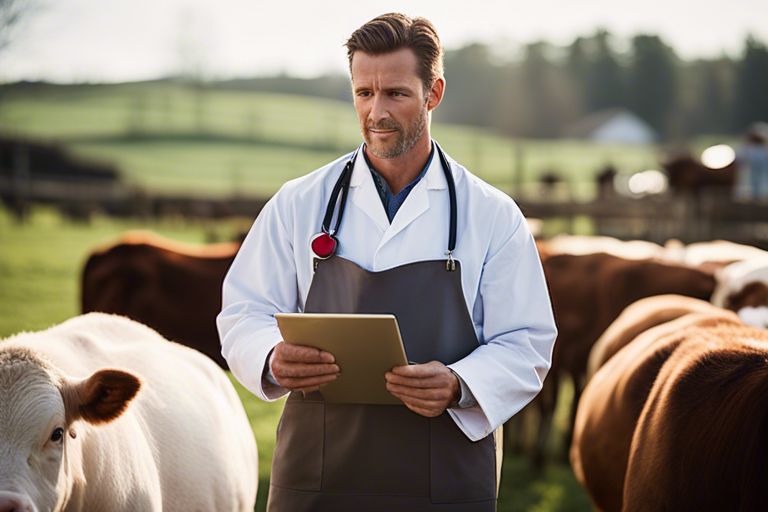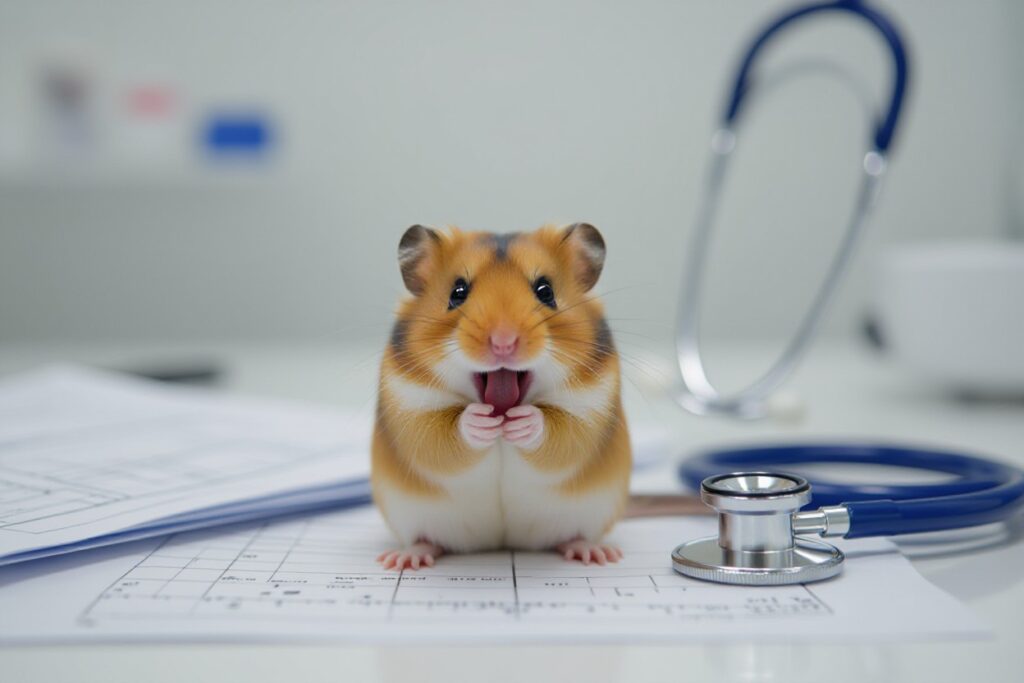Just like humans, livestock animals can also face a variety of health issues that can impact their well-being and productivity. It is crucial for livestock owners and farmers to be able to identify common health problems early on and take the necessary steps to address them effectively. In this blog post, we will discuss some of the most prevalent health issues in livestock and provide practical tips on how to manage and prevent them. By being proactive and knowledgeable about your livestock’s health, you can ensure that they lead healthy and thriving lives.
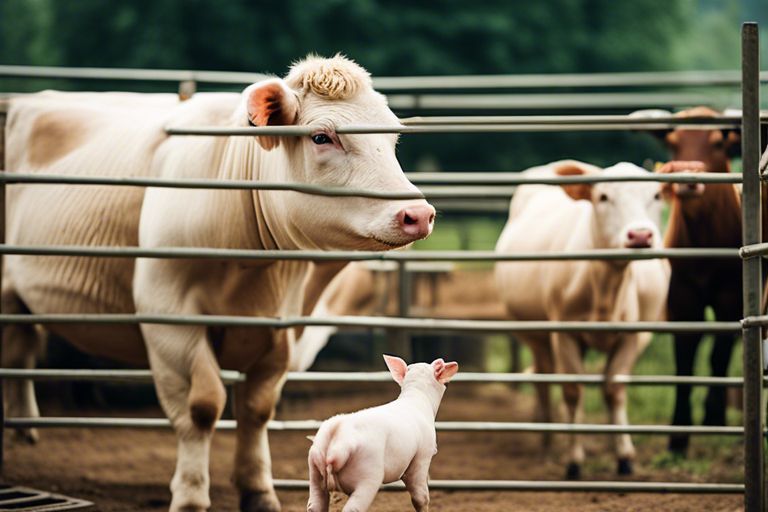
Preventative Health Measures for Livestock
How-to Establish an Effective Vaccination Program
For optimal health in livestock, it is crucial to establish an effective vaccination program. Health experts recommend working with a veterinarian to determine the vaccines needed based on the specific health risks in your region and the type of livestock you have. This program should include a schedule for administering vaccinations, keeping detailed records, and monitoring the effectiveness of the vaccines.
Tips for Maintaining Proper Nutrition and Diet
With livestock, proper nutrition is key to overall health and productivity. Providing a balanced diet that meets the specific nutritional needs of your animals is vital. This includes offering a mixture of high-quality forages, grains, and supplements as needed. Knowing the nutritional requirements for each type of livestock you have is fundamental to ensuring they thrive.
- Ensure access to clean and fresh water at all times.
- Monitor body condition and adjust feeding rations accordingly.
- Consult with a nutritionist or veterinarian for specialized dietary recommendations.
Recognizing and Addressing Infectious Diseases
Identifying Factors Contributing to Disease Outbreak
One of the crucial steps in managing infectious diseases in livestock is identifying the factors that contribute to disease outbreaks. These can include inadequate biosecurity measures, high stocking densities, poor ventilation, contaminated feed or water sources, and contact with carriers of the disease.
- Regularly monitor the health status of the livestock through routine checks and observation.
- Ensure proper sanitation practices are in place to reduce the risk of disease spread.
- Implement vaccination protocols recommended by veterinarians to prevent common infectious diseases.
This proactive approach can help prevent disease outbreaks and minimize the impact on your livestock population.
How-to Implement Quarantine and Biosecurity Measures
Identifying and implementing quarantine and biosecurity measures is necessary in preventing the spread of infectious diseases within your livestock. Establish designated quarantine areas for new animals or those returning from shows or auctions. Implement strict biosecurity protocols such as disinfecting equipment, limiting visitor access, and controlling vehicle movements onto the farm to minimize the risk of disease transmission.
Understanding the importance of these measures and consistently adhering to them can significantly reduce the likelihood of disease outbreaks on your farm.
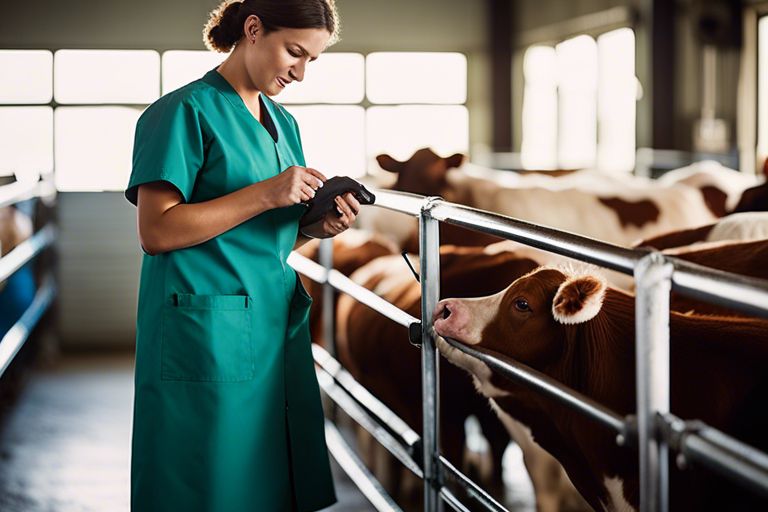
Managing Non-Infectious Health Problems
How-to Identify and Treat Nutritional Deficiencies
All livestock animals require a balanced diet to maintain optimal health. Symptoms of nutritional deficiencies in livestock may include poor growth, weight loss, dull coat, and reduced milk production. It is crucial to work with a veterinarian to identify specific deficiencies through blood tests or tissue analysis. Once diagnosed, supplementing the animal’s diet with the lacking nutrients or adjusting their feeding regimen can help address the issue.
Tips for Preventing and Managing Physical Injuries
Physical injuries are common among livestock, especially in crowded or poorly designed living environments. To prevent injuries, ensure proper spacing in housing areas, remove any sharp objects or obstacles that animals could injure themselves on, and maintain a clean and safe environment. Regularly inspecting the facilities for any hazards or wear and tear can help minimize the risk of accidents.
- Provide adequate space for each animal to move freely.
- Keep housing areas clean and free of any sharp objects.
- Regularly inspect facilities for potential hazards or risks.
Understanding the importance of addressing non-infectious health problems in livestock is crucial for maintaining their overall well-being. By being proactive in identifying and treating nutritional deficiencies and taking preventive measures to avoid physical injuries, livestock owners can ensure the health and longevity of their animals. Keep in mind, a healthy animal is a happy and productive one.
- Regular veterinary check-ups can help catch any health issues early on.
- Proper nutrition and housing are key factors in preventing common health problems.
- Regular monitoring and maintenance of facilities are vital for animal welfare.
Reproductive Health and Fertility Management
Factors Affecting Livestock Fertility
Keep in mind that several factors can impact the fertility of livestock, including nutrition, age, stress, and genetics. Nutrition plays a crucial role in the reproductive health of animals, as deficiencies in key nutrients can lead to poor fertility. Age also plays a factor, with younger and older animals often experiencing lower fertility rates. Additionally, stress from environmental conditions, handling, or disease can affect the reproductive performance of livestock. Genetic factors can also impact fertility, with some breeds being more prone to reproductive issues than others.
- Proper nutrition is important for fertility.
- Age can impact fertility rates.
- Stress from various sources can affect reproductive performance.
- Genetic factors play a role in fertility issues.
This comprehensive understanding of the factors affecting livestock fertility is crucial in developing effective management strategies to optimize breeding success and ensure the health and productivity of the herd. This knowledge enables farmers to make informed decisions regarding breeding practices and health interventions to support the reproductive capacity of their animals.
How-to Improve Breeding Success and Neonatal Care
Now, let’s investigate into how to improve breeding success and neonatal care in livestock. Breeding success can be enhanced by implementing a rigorous breeding program that takes into account factors such as nutrition, breeding methods, and genetic selection. Proper management of pregnant animals and neonates is important to ensure their health and survival. Adequate housing, nutrition, and veterinary care are critical components of neonatal care that can increase the chances of a successful breeding season.
Breeding success and neonatal care are interconnected aspects of livestock management that require careful planning and attention to detail. By implementing best practices in breeding and neonatal care, farmers can improve the overall productivity and welfare of their livestock.
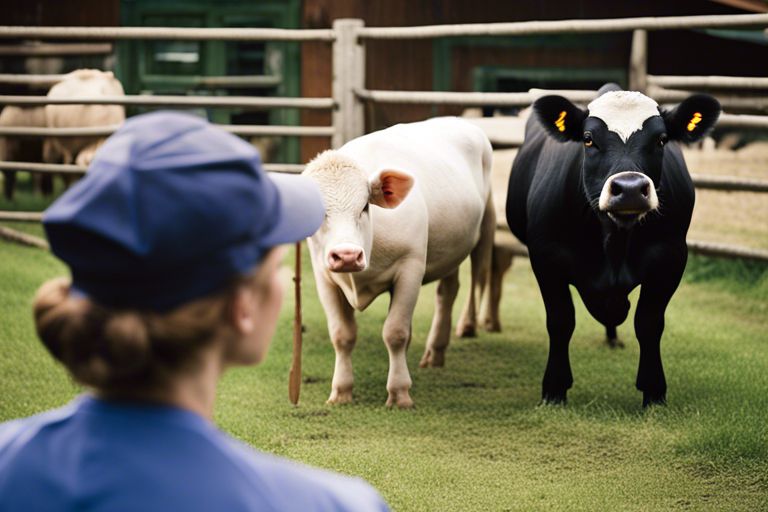
Mental Wellbeing and Stress Reduction in Livestock
How-to Recognize Signs of Stress in Animals
Noticing signs of stress in livestock is crucial for their overall wellbeing. Signs may include restlessness, excessive vocalization, decreased appetite, and changes in behavior such as aggression or withdrawal. By being observant of these signs, farmers can address stressors before they escalate and impact the health of the animals.
Tips for Creating a Low-Stress Environment
Reduction of stress in livestock can be achieved by implementing a few simple strategies on the farm. Providing ample space for movement and social interaction, maintaining a consistent feeding and care routine, and minimizing loud noises and sudden movements can all contribute to a calmer environment for the animals.
- Offer a tranquil and clean environment
- Ensure optimal ventilation and temperature control
- Provide access to clean water at all times
After implementing these tips, farmers may notice a positive change in the behavior and productivity of their livestock. By prioritizing mental wellbeing and stress reduction in livestock, farmers can ensure a healthier and more balanced environment for their animals.
Final Words
To wrap up, it is crucial for livestock owners to be aware of common health issues that can affect their animals. By understanding the signs and symptoms of these issues, implementing preventive measures such as proper nutrition, vaccination, and biosecurity practices, and seeking timely veterinary care when needed, the health and well-being of livestock can be maintained. Regular monitoring and a proactive approach are key in addressing these health issues effectively and ensuring a healthy herd or flock. Recall, healthy animals lead to higher productivity and profitability in livestock farming operations.
FAQ
Q: What are common health issues in livestock?
A: Common health issues in livestock include parasites, infectious diseases, nutritional deficiencies, and respiratory issues.
Q: How can parasites affect livestock health?
A: Parasites can weaken livestock, leading to weight loss, poor growth, anemia, and in severe cases, death.
Q: What are some signs of infectious diseases in livestock?
A: Signs of infectious diseases in livestock may include fever, coughing, nasal discharge, diarrhea, lethargy, and decreased appetite.
Q: How can nutritional deficiencies impact livestock health?
A: Nutritional deficiencies can result in poor growth, reproductive issues, weak immune system, and a range of health problems in livestock.
Q: What are common respiratory issues in livestock?
A: Common respiratory issues in livestock include pneumonia, bronchitis, and respiratory infections.
Q: How can I address health issues in livestock?
A: To address health issues in livestock, it is important to provide proper nutrition, prevent parasitic infestations, practice good biosecurity measures, and promptly treat any signs of illness.
Q: When should I consult a veterinarian for livestock health issues?
A: It is recommended to consult a veterinarian if you notice any unusual signs or symptoms in your livestock, to determine the underlying cause and appropriate treatment plan.
